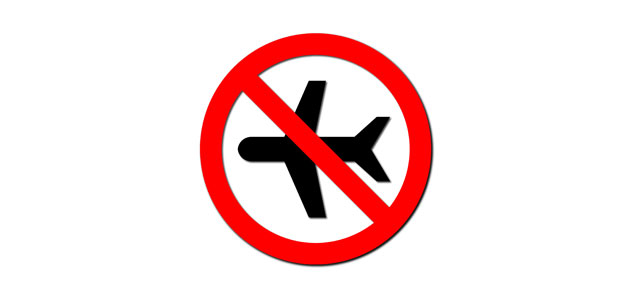
Ball Lunla/<a href="http://www.shutterstock.com/pic.mhtml?id=102769205&src=id">Shutterstock</a>
A Virginia man who claims that as a teenager he was detained, interrogated, and abused in Kuwait at the behest of the Obama administration (a story I wrote about here) has won a key victory in his lawsuit against the government. A George W. Bush-appointed judge allowed Gulet Mohamed’s case to move forward on Wednesday, ruling that by putting him on the no-fly list (and thus infringing on his right to return home to the US), the government made him “a second class citizen.”
Judge Anthony Trenga of the US District Court in Alexandria, Virginia, ruled that the no-fly list’s “impact on a citizen who cannot use a commercial aircraft is profound,” restricting the right to travel and visit family, the “ability to associate,” and even the ability to hold down a job. Inclusion on the list also “also labels an American citizen a disloyal American who is capable of, and disposed toward committing, war crimes, and one can easily imagine the broad range of consequences that might be visited upon such a person if that stigmatizing designation were known by the general public,” Trenga added. Here’s another key excerpt:
In effect, placement on the No Fly List is life defining and life restricting across a broad range of constitutionally protected activities and aspirations; and a No Fly List designation transforms a person into a second class citizen, or worse. The issue, then, is whether and under what circumstances the government should have the ability to impose such a disability on an American citizen, who should make any such decision, according to what process, and by what standard of proof.
Trenga ruled that the government, which argued that Mohamed should go through the Department of Homeland Security’s notoriously Kafkaesque no-fly list redress process before suing, had not made its case. “The current record,” he wrote, “is inadequate to explain why judicial involvement before a person is placed on the No Fly List is either unnecessary or impractical, other than perhaps within the context of an emergency.” In other words, the government should let the courts review placements before they happen—not wait for citizens to exhaust every avenue for complaint.
“We applaud this decision as a clear rebuke of the government’s use of the no-fly list as applied to Americans,” Gadeir Abbas, Mohamed’s attorney, said in a statement released Wednesday evening.
Wednesday’s was the second no-fly list ruling in as many weeks: on January 15, a court in San Francisco ruled that a former Stanford University doctoral student was not a national security threat and should be removed from the list.
You can read the whole Mohamed decision here:
















